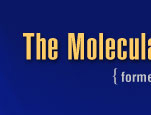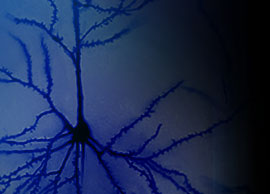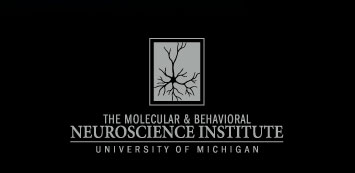Current Research Interests:
Our lab focuses on understanding the genetic, environmental and neurobiological factors that contribute to individual differences in reward learning and susceptibility to mental illness, including addiction. We are interested in the psychological mechanisms that underlie and influence appetitive Pavlovian learning and the neural circuitry involved in these processes.
We use a combined approach of behavioral, pharmacological, molecular and chemogenetic tools in order to better understand the biological bases of motivated behavior. Our research to-date has primarily focused on the role of dopamine in stimulus-reward learning; and more recently, we have begun to investigate the role of cortico-thalamo-striatal pathways in these processes. In addition, we continue to study the impact of stressful events and how hypothalamic-pituitary-adrenal (HPA) axis physiology might contribute to individual differences in emotionality and response to the environment.
Our ultimate goal is to uncover the neurobiological mechanisms that that drive maladaptive behavior in hopes of identifying novel pharmacological targets for the treatment of addiction and other mental illnesses.
Awards, Honors, and Annoucements:
Sofia Lopez, a fifth year student in the Neuroscience Graduate Program was awarded a F99/K00 DSPAN Award from the National Institutes of Health (NINDS). This Award will support her as she completes her dissertation work in the Flagel Lab and then into her postdoc for up to 4 years. Sofia's work focuses on the interaction between reward and stress mechanisms in mediating individual differences in cue-reward learning.
Shelly Flagel won the 2019 Endowment for the Basic Sciences Teaching Award from the University of Michigan.
Amanda Iglesias, a third year student in the Neuroscience Graduate Program was awarded a National Science Foundation Graduate Research Fellowship to support her work in the Flagel Lab investigating the role of hypothalamic circuitry in mediating individual differences in cue-reward learning.
Shelly Flagel was happy to work with Health in Our Hands (@heatlh_io_hands) and students from the University of Michigan School of Public Health (Erika Holiday, Ross Baiers and Madison Hafitz) on a video which will be embedded into a new addiction unit to expose young students to the work and careers of scientists.
Selected Publications:
Campus P, Covelo IR, Kim Y, Parsegian A, Kuhn BN, Lopez SA, Neumaier JF, Ferguson SM, Solberg Woods LC, Sarter M, Flagel SB.
The paraventricular thalamus is a critical mediator of top-down control of cue-motivated behavior in rats.
eLife. 2019 Sep.
doi: 10.7554/eLife.49041.001
Kuhn BN, Campus P, Flagel SB.
The neurobiological mechanisms underlying sign-tracking behavior.
In Sign-tracking and Drug Addiction, Ed. Arthur Tomie and Jonathan Morrow. Michigan Publishing, University of Michigan Library, 2018.
doi: 10.3998/mpub.10215070
Kuhn BN, Klumpner MS, Covelo IR, Campus P, Flagel SB.
Transient inactivation of the paraventricular nucleus of the thalamus enhances cue-induced reinstatement in goal-trackers, but not sign-trackers.
Psychopharmacology (Berl). 2018 Apr;235(4):999-1014. Epub 2017 Dec 28.
doi: 10.1007/s00213-017-4816-1
Joyner MA, Gearhardt AN, Flagel SB.
A translational model to assess sign-tracking and goal-tracking behavior in children.
Neuropsychopharmacology. 2018 Jan;43(1):228-229.
doi: 10.1038/npp.2017.196
Haight JL, Fuller ZL, Fraser KM, Flagel SB.
A food-predictive cue attributed with incentive salience engages subcortical afferents and efferents of the paraventricular nucleus of the thalamus.
Neuroscience. 2017 Jan 6;340:135-152. Epub 2016 Oct 25.
doi: 10.1016/j.neuroscience.2016.10.043
Flagel SB, Chaudhury S, Waselus M, Kelly R, Sewani S, Clinton SM, Thompson RC, Watson SJ Jr, Akil H.
Genetic background and epigenetic modifications in the core of the nucleus accumbens predict addiction-like behavior in a rat model.
Proc Natl Acad Sci U S A. 2016 May 17;113(20):E2861-70. Epub 2016 Apr 25.
doi: 10.1073/pnas.1520491113
Flagel SB, Cameron CM, Pickup KN, Watson SJ, Akil H, Robinson TE.
A food predictive cue must be attributed with incentive salience for it to induce c-fos mRNA expression in cortico-striatal-thalamic brain regions.
Neuroscience. 2011 Nov 24;196:80-96. Epub 2011 Sep 10.
doi: 10.1016/j.neuroscience.2011.09.004
Flagel SB, Clark JJ, Robinson TE, Mayo L, Czuj A, Willuhn I, Akers CA, Clinton SM, Phillips PE, Akil H.
A selective role for dopamine in stimulus-reward learning.
Nature. 2011 Jan 6;469(7328):53-7. Epub 2010 Dec 8.
doi: 10.1038/nature09588
Robinson TE, Flagel SB.
Dissociating the predictive and incentive motivational properties of reward-related cues through the study of individual differences.
Biol Psychiatry. 2009 May 15;65(10):869-73. Epub 2008 Oct 18.
doi: 10.1016/j.biopsych.2008.09.006
View publications on PubMed - NCBI
|






